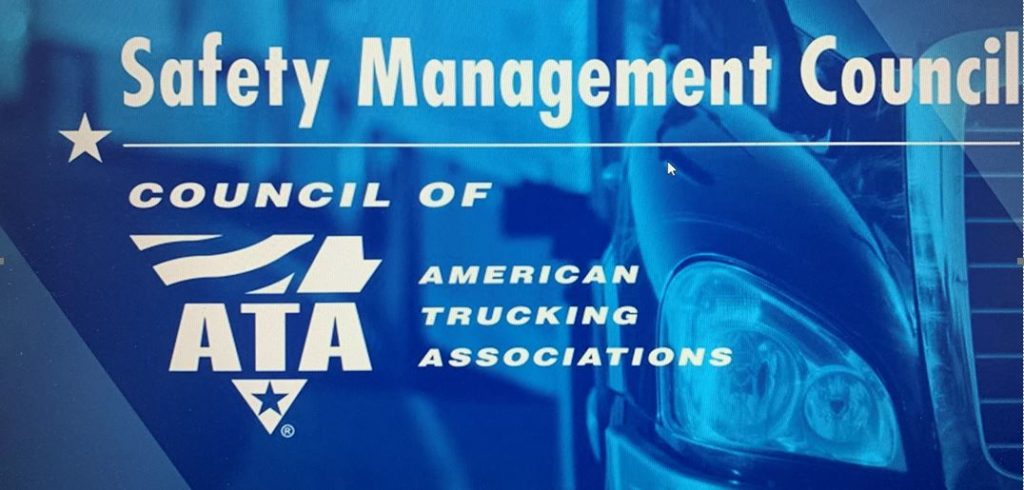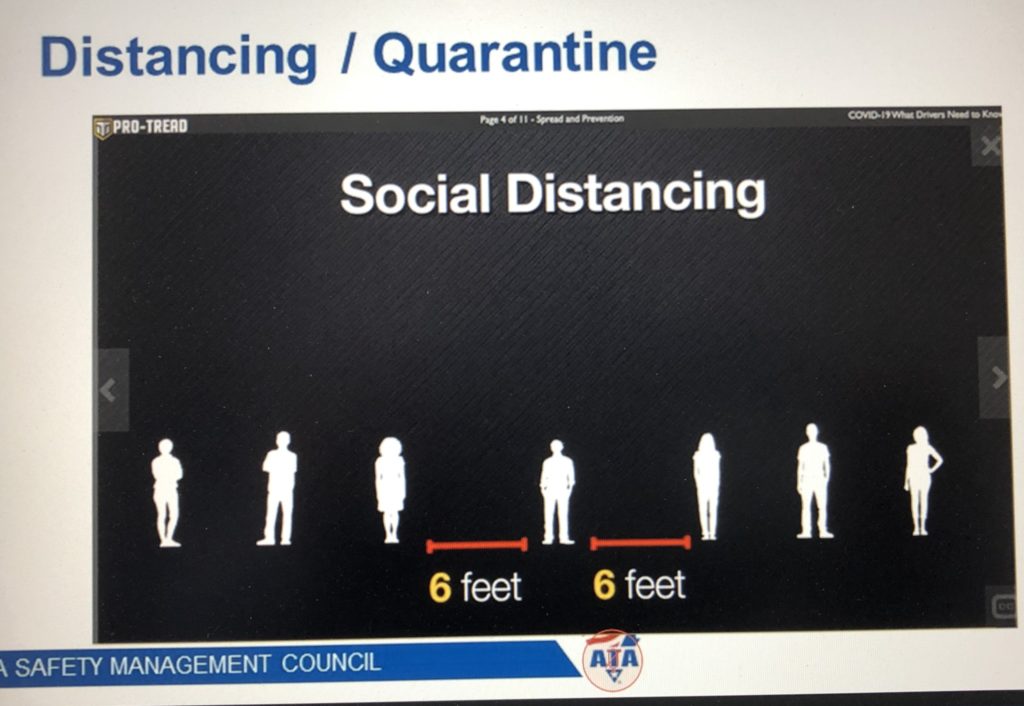Fleets try to stop the spread of Covid-19

ARLINGTON, Va. – Major U.S. fleets are going the extra mile in trying to protect their employees from Covid-19, company executives said Wednesday.
They were speaking at a webinar on driver safety under the pandemic, organized by the American Trucking Associations (ATA).
One company that is taking a proactive approach on the crisis is J. Kings Food Service Professionals.
It provides sanitation kits to drivers, cleans its trucks on a daily basis and spreads the employees out to practice social distancing.
“We’re taking a lot of stuff to do both social distancing as well as, you know, to constantly remind (our staff) of the (need to) sanitize,” said Paul Mullen, safety and training supervisor at J. Kings.

“We don’t have more than three guys in the room. It’s a good-enough size room where we could keep everybody six feet apart,” Mullen said.
“We all know we ought to wash our hands, but I bet a lot of us didn’t know we needed to wash our hands for 20 seconds.”
– Greer Woodruff, senior vice-president of safety, security and driver personnel at J. B. Hunt.
Complying with Covid-19 rules in a short period of time was a big challenge for J.B. Hunt Transport Services because of the sheer number of drivers it employs –19,000.
“We all know we ought to wash our hands, but I bet a lot of us didn’t know we needed to wash our hands for 20 seconds,” said Greer Woodruff, senior vice-president of safety, security and driver personnel at J. B. Hunt.
Getting the word out was easy, though, as the company has a number of different means to communicate, including onboard computers.
Securing the personal protective equipment such as sanitizers, gloves and masks and then getting those to over 400 work reporting locations was a tough task, he said.
In one of the company’s early communications, J. B. Hunt told drivers that there is nothing wrong with getting a gallon of water and a bar of soap.
“You know, if you can’t find hand sanitizers, you got to do the best you can,” Woodruff said.
Bill Woolsey, director of safety at Freymiller, said his company also adopted some of the same measures taken by J. Kings and J. B. Hunt.
Freymiller is also fogging all of its offices after hours in a bid to disinfect, and kill the virus, he said.
And, every person coming into company facilities gets a temperature check.
“So, if there’s any concern then we’re able to address it immediately… We’re doing a lot just like everybody. We’re trying to do our part,” said Woolsey.
Woodruff of J.B. Hunt said his company has set up a policy to help drivers who are unable to work due to illness or fatigue.
“We’ve implemented an emergency paid-time-off policy that provides employees up to 80 hours of additional paid time off.”
He said this will benefit employees in the event they are quarantined, and they are not able to work from home.
At Freymiller, Woolsey said, the company has drafted a Covid-19 strategy, which spells out preventive measures as well as steps to manage risks.
Remote workforce
The executives said while many employees enjoy working from home, others are itching to go back to their offices.
“I think this (Covid-19) pushed us into a remote work environment that we probably never would have done without really having to,” said Woodruff.
“But we’ve got a very high percentage of our employees whose physical presence isn’t required to do the job that are able to work remotely.”
He said the level of productivity has been as high working remotely as they would be on an ordinary day in the office.
“We have spoken with many of our people and I would tell you there’s a fairly high percentage of people that want to be able to come back into the office, and are looking forward to that.”
“I think that’s probably opening the door to a lot of flexibility and opportunity to do things differently.”
– Bill Woolsey, director of safety at Freymiller.
Other executives agreed that the ability to work from home gives companies a lot of flexibility.
“I think that’s probably opening the door to a lot of flexibility and opportunity to do things differently that we just really never took the time to analyze and decide whether that would be efficient or effective,” Woolsey said.
Moderator Laura McMillan, vice-president of training development at Instructional Technologies, said it is clear that all the investments fleets made in developing workforce are now paying off.
“It is pretty impressive,” McMillan said.
Have your say
This is a moderated forum. Comments will no longer be published unless they are accompanied by a first and last name and a verifiable email address. (Today's Trucking will not publish or share the email address.) Profane language and content deemed to be libelous, racist, or threatening in nature will not be published under any circumstances.